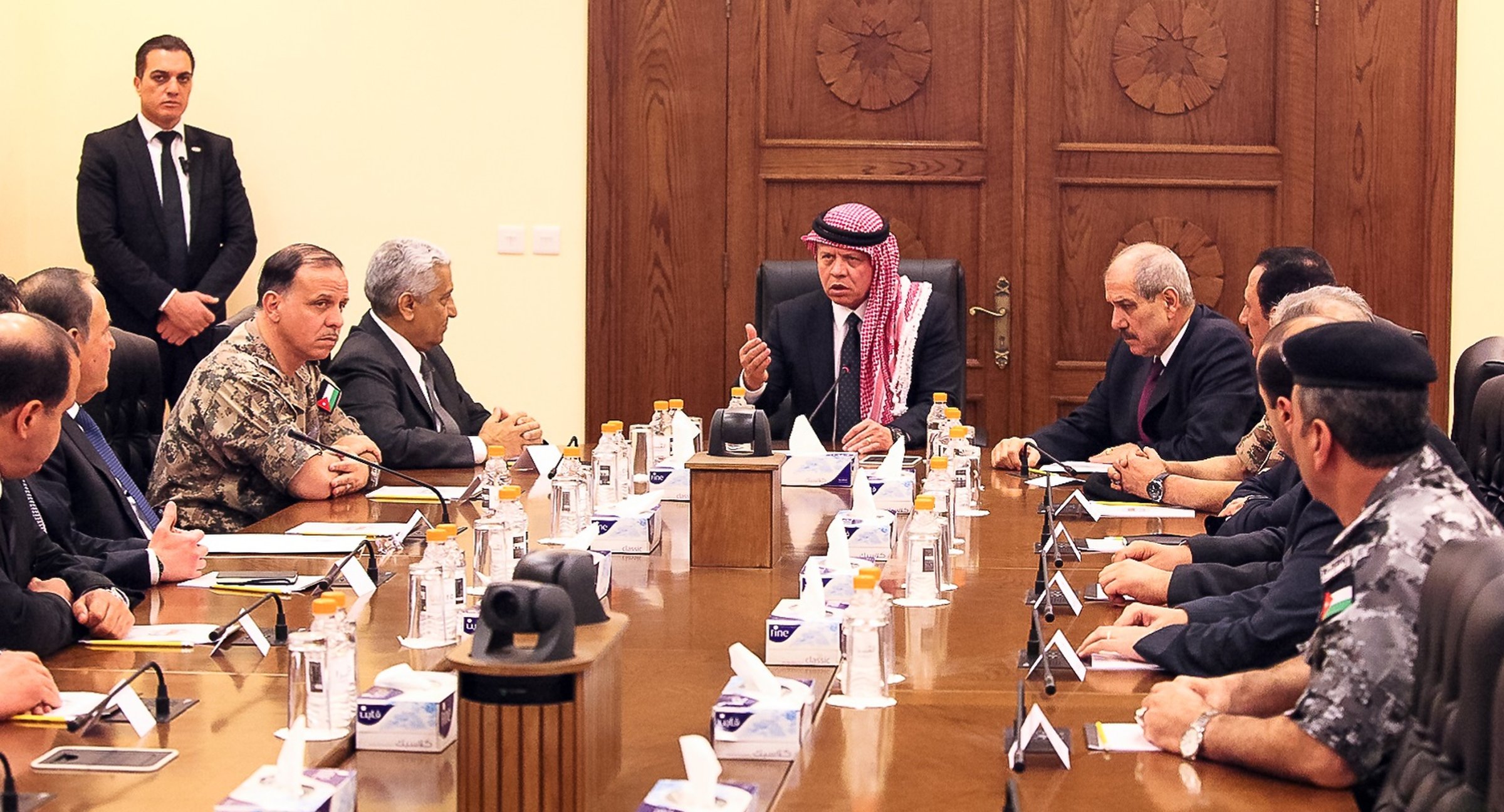
Jordan, a vulnerable country on the front lines of the longest-running conflicts in the Middle East, has become a master of trying to balance the demands of its foreign partners and donors with the needs of its citizens since it became independent in 1946. But the abduction and killing of pilot Muath al-Kaseasbeh has left the people of Jordan united with its Western allies in their revulsion at the executions of hostages by the Islamic State of Iraq and Greater Syria (ISIS).
Jordan is one of the U.S.’s closest allies in the Arab world and plays a vital role in the U.S.-led fight against ISIS. U.S.-educated King Abdullah relies closely on advice from American intelligence advisers and in recent years, on financial support from Gulf Arab states. They include Saudi Arabia and other Gulf states that cut ties with Jordan in 1990 when the late King Hussein was seen to have sided with Iraq against Kuwait after Saddam Hussein’s invasion. It’s taken almost two decades to repair those ties.
As fighting flared in neighboring Syria in 2011, the U.S. quietly built up its forces in the south of the country, where U.S. and fighter jets of the United Arab Emirates back the country’s own small air force. After the “Eager Lion” joint exercises between Jordan and the U.S. in 2013, the latter reportedly left 900 troops, a squadron of F-16s and a battery of Patriot missiles to ensure Jordan’s security. The presence of American forces has not been widely publicized in Jordan because although ISIS represents a threat to Jordan, much of the kingdom’s conservative population do not want their country to be in alliance with the West.
It is a measure of the concern shared by the U.S. over Jordan’s stability that the kingdom’s offer to negotiate a prisoner release with ISIS last week passed with barely a comment in Washington. No matter how unpalatable, U.S. officials realized the kingdom felt it could not survive the anger of the Jordanian people if it allowed al-Kaseasbeh to be killed. If al-Kaseasbeh’s jet hadn’t been captured by ISIS, most Jordanians would have been unaware of how deeply Jordan was involved in the fight against ISIS.
Last year Jordan’s southern city of Maan once again made headlines when a few townspeople raised ISIS flags. But scratch the surface and it’s not a love of ISIS that has young men burning tires and attacking police stations — it’s a belief the government is ignoring its people in the impoverished south.
With the knowledge that al-Kaseasbeh had been dead for several weeks when the kingdom offered a prisoner exchange, the country now feels doubly betrayed. While they want revenge, there are many who believe Jordan should never have been involved in bombing Syria in the first place and should end its role in the coalition.
Revenge may be satisfied with Wednesday’s executions of Sajida al-Rishawi and Ziad al-Karbouly but some will also want Jordan to step back from its allies in the fight against ISIS.
But that’s not an option for the kingdom — either economically or militarily. The country’s own borders have been threatened — including last year when it sent Jordanian special forces into Iraq to secure the Iraqi side of its border crossing.
Jordanian forces have a long and close relationship with the U.S. military and its intelligence services have worked closely together in Afghanistan and other conflicts. The country is now such an integral part of the U.S.-led coalition fighting ISIS in Iraq and Syria that to pull back on its participation would require a major reworking of how the U.S. fights — and put its own safety in question. The country is likely to quietly increase its participation in the coalition — while reminding its citizens of the reasons why it is in the fight.
More Must-Reads from TIME
- Donald Trump Is TIME's 2024 Person of the Year
- Why We Chose Trump as Person of the Year
- Is Intermittent Fasting Good or Bad for You?
- The 100 Must-Read Books of 2024
- The 20 Best Christmas TV Episodes
- Column: If Optimism Feels Ridiculous Now, Try Hope
- The Future of Climate Action Is Trade Policy
- Merle Bombardieri Is Helping People Make the Baby Decision
Contact us at letters@time.com